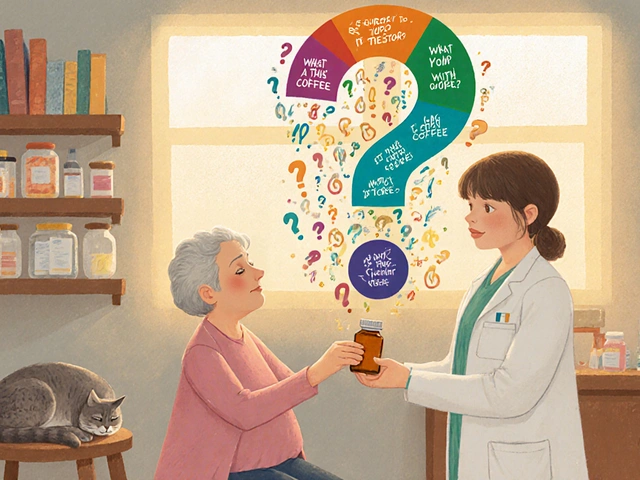Vaginal health: what feels normal and what doesn’t
Vaginal health is about more than avoiding infections. It’s about understanding what’s normal for your body and spotting changes early. Normal discharge varies by cycle: thin and clear around ovulation, thicker and white after ovulation. Smell should be mild or neutral. Anything sharply foul, green/yellow, very itchy, or painful likely needs attention.
Common problems & quick fixes
Yeast infections cause thick, white cottage-cheese discharge and itching. Over-the-counter antifungal creams (miconazole or clotrimazole) or a single-dose oral medicine often help, but don’t self-treat if you’re unsure. Bacterial vaginosis (BV) gives a fishy smell and thin gray discharge; it usually needs a prescription antibiotic. STIs can cause unusual bleeding, severe pain, or unusual discharge — get tested if you’re at risk.
Antibiotics, pregnancy, and hormonal changes (like menopause or stopping birth control) can change your vaginal flora and raise infection risk. If a treatment doesn’t improve symptoms in 48–72 hours, see a clinician — misdiagnosis is common and delays can make things worse.
Everyday habits that help
Skip douching. Douching washes away good bacteria and raises infection risk. Use plain water to rinse, and choose unscented soap only for external areas. Wear breathable cotton underwear and avoid tight pants for long periods. Change out of wet swimsuits or sweaty gym clothes as soon as you can.
Keep an eye on vaginal pH. A slightly acidic environment protects you. Products labeled "pH-balanced" can help, but many aren’t necessary for everyday use. If you use lubricants, pick water-based or silicone-based ones without glycerin if you’re prone to yeast infections. Condoms protect against STIs and help keep the microbiome balanced after new partners.
If you use tampons or menstrual cups, follow manufacturer guidance for cleaning and changing. Leaving an item in too long raises infection risk and can cause irritation or odor. During pregnancy or with an IUD, contact your provider quickly if you notice unusual bleeding, strong odor, fever, or severe pain.
Probiotics—especially those containing Lactobacillus—can help some people keep a healthy balance, but results vary. Foods like plain yogurt or supplements might support recovery after antibiotics, but they’re not a guaranteed cure. Always tell your provider about supplements you take.
When to see a doctor? Seek care for fever, severe pelvic pain, unexpected bleeding, sudden strong odor, or symptoms that don’t get better after a couple days of home treatment. If infections keep returning, ask for a targeted workup — recurring problems often need tailored treatment.
Want more reliable drug and treatment info? Our site has clear guides on common medicines and safe buying tips. If something feels off, trust your instincts and get it checked — quick care usually means simpler treatment and less worry.
27
The Role of Probiotics in Preventing Infections of the Intestines and Vagina
In my latest research, I've discovered that probiotics play a vital role in preventing infections in our gut and vagina. These friendly bacteria boost our immune system, preventing harmful bacteria from causing diseases. They help maintain a healthy balance of our body’s microbiota, which is especially crucial for women's vaginal health. Regular intake of probiotics can significantly reduce the risk of infections like bacterial vaginosis and urinary tract infections. So, remember to include probiotics in your diet, folks. It's a simple step towards a healthier you!
Latest Posts
Popular Posts
-
 Extended Use Dates: How the FDA Extends Drug Expiration Dates During Shortages
Extended Use Dates: How the FDA Extends Drug Expiration Dates During Shortages
-
 OTC Heartburn Medications: Antacids, H2 Blockers & PPIs Explained
OTC Heartburn Medications: Antacids, H2 Blockers & PPIs Explained
-
 Magnesium Supplements and Osteoporosis Medications: What You Need to Know About Timing
Magnesium Supplements and Osteoporosis Medications: What You Need to Know About Timing
-
 Meniere’s Diet: How Sodium Restriction and Fluid Balance Reduce Vertigo and Hearing Loss
Meniere’s Diet: How Sodium Restriction and Fluid Balance Reduce Vertigo and Hearing Loss
-
 Stinging Insect Allergy: What Venom Immunotherapy Really Does for You
Stinging Insect Allergy: What Venom Immunotherapy Really Does for You



